In July and August, we acknowledge Cleft and Craniofacial Awareness Month, International Non-Binary People’s Day, Fragile X Awareness Day, National Disability Independence Day, Spinal Muscular Atrophy Awareness Month, MedicAlert Awareness Month, National Sister Day, National Day of Friendship, International Assistance Dog Week, International Youth Day, World Humanitarian Day, and International Overdose Awareness Day.
Below, read more about each date of significance, written by members of our Inclusivity, Diversity, Equity and Accessibility (IDEA) Committee.
July Awareness Days
Cleft and Craniofacial Awareness Month
July is National Cleft and Craniofacial Awareness and Prevention Month, dedicated to raising awareness about cleft and craniofacial conditions, promoting early diagnosis and treatment, and supporting individuals and families affected by these conditions.
Craniofacial conditions involve abnormalities of the bones, muscles or soft tissues of the head and face. These may include:
- Cleft lip – occurs when the tissue of the upper lip does not fully join during early development
- Cleft palate – occurs when the roof of the mouth does not fully close
- Craniosynostosis – a condition in which the bones of a baby’s skull fuse too early, sometimes causing facial asymmetry
These conditions can appear on their own or in combination, often affecting a child’s ability to eat, speak and breathe properly. Awareness is essential to ensure that families have timely access to the medical care, resources and support they need. With early intervention and specialized treatment, children with craniofacial conditions can lead healthy and fulfilling lives.
Causes and risk factors may include:
- Genetics – hereditary conditions passed through family history
- Environmental factors – including exposure to tobacco, alcohol or lack of folic acid during pregnancy
- Maternal health – such as diabetes or the use of certain medications during pregnancy
Preventive care includes:
- Routine prenatal checkups
- Avoiding smoking, alcohol and certain medications during pregnancy
- Ensuring adequate folic acid intake before and during pregnancy
Comprehensive care for craniofacial conditions often involves a team of specialists. Orthodontists, speech-language pathologists, otolaryngologists (ENTs) and surgeons may provide:
- Hearing support – children with cleft palate may be more prone to ear infections or hearing loss
- Speech and feeding care – to address swallowing challenges and promote language development
- Surgical intervention – to support facial reconstruction and improve function
Raising awareness can help reduce stigma, support prevention efforts and ensure that every child has access to the care they deserve.
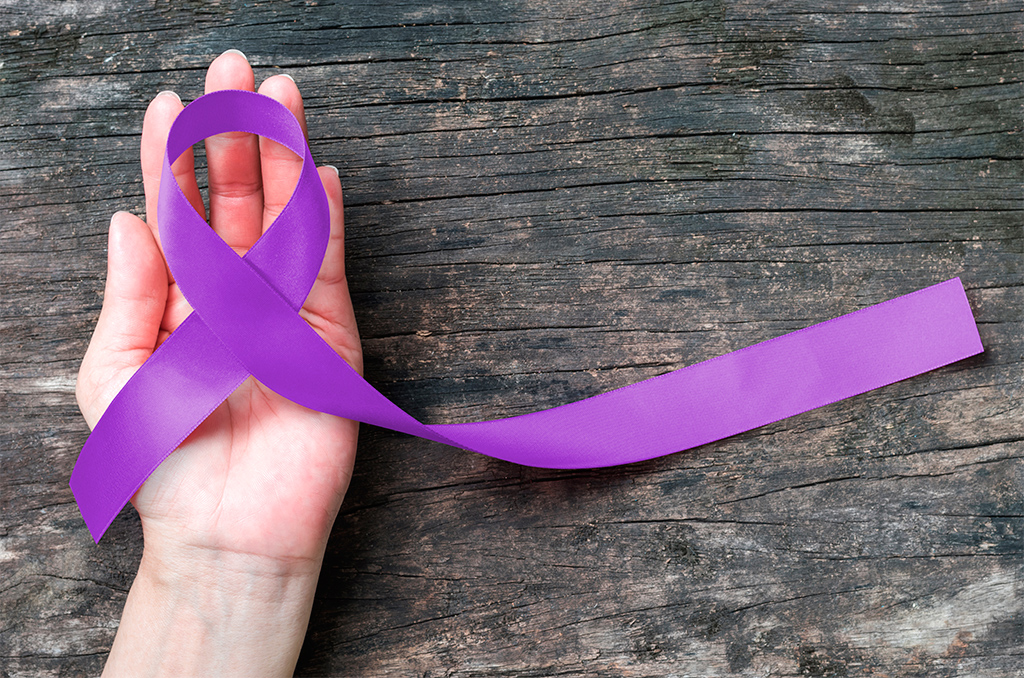
International Non-Binary People’s Day: July 14
Non-binary is an umbrella term used to describe individuals who do not identify strictly as male or female, but instead see themselves outside or between the traditional gender binary. Some non-binary people may also identify as transgender, though not all do.
Society often reinforces rigid gender expectations that can erase or invalidate the lived experiences of non-binary individuals. These norms tend to reduce people to their assigned sex at birth and overlook the diversity of gender identities that exist. The effects of colonization have further suppressed the recognition and presence of non-binary people, despite the fact that many cultures have long recognized more than two genders. For instance, some Indigenous communities honour Two-Spirit people, who embody both masculine and feminine spirits and are not bound by Western definitions of gender.
Non-Binary People’s Day is an opportunity to acknowledge the existence, identity and contributions of non-binary individuals. It celebrates the diversity of the community and affirms the right of all people to live as their authentic selves.

Fragile X Awareness Day: July 22
Fragile X Day is an opportunity to raise awareness about Fragile X syndrome and celebrate the strengths of those living with the condition. It is one of the most commonly inherited causes of autism and intellectual disability. An estimated 136,000 people in Canada are living with Fragile X syndrome. Around the world, buildings and landmarks are often illuminated in teal to show support.
Fragile X–associated conditions are a group of disorders caused by an expansion of the FMR1 gene on the X chromosome. This gene expansion can result in behavioural, cognitive, physical and medical challenges. Many individuals with Fragile X syndrome demonstrate strong social skills, creativity and an ability to think in unique and innovative ways.
Learn more about Grandview Kid, Ayush, who was born with Fragile X syndrome >
National Disability Independence Day: July 26
National Disability Independence Day is observed each year on July 26. The day commemorates the signing of the Americans with Disabilities Act in 1990. This landmark civil rights law prohibits discrimination against people with disabilities and guarantees their full participation in the community, independent living and economic self-sufficiency.
The act covers areas such as public accommodation, employment, transportation and state and local government services. It has been life-changing for many, with one in four Americans with disabilities now better able to access and participate in workplaces and communities.
In the Canadian Charter of Rights and Freedoms, section 15 prohibits discrimination based on disability, helping to ensure that people of all abilities are supported in living to their fullest potential.
National Disability Independence Day is a reminder of the progress made toward equality and inclusion, and the work still needed to ensure all people with disabilities can live with dignity, independence and equal opportunity.
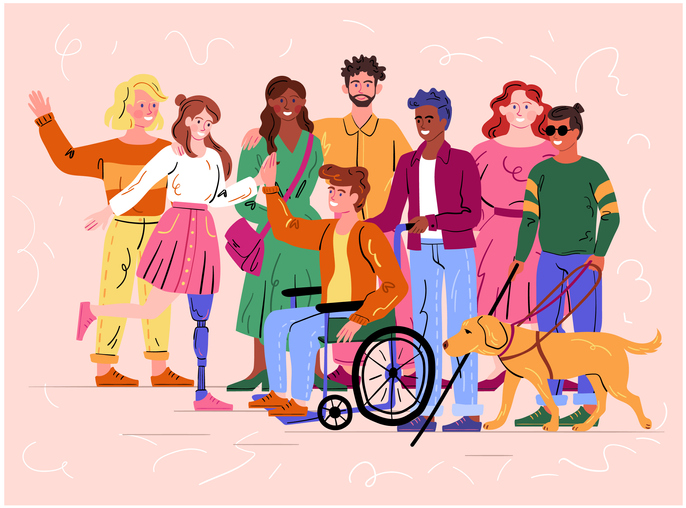
August Awareness Days
Spinal Muscular Atrophy Awareness Month
August is Spinal Muscular Atrophy (SMA) Awareness Month, a time to raise awareness about a rare genetic neuromuscular disorder that affects voluntary muscle movement. SMA is a motor neuron disease, meaning it impairs the nerve cells that control muscles used for crawling, walking, swallowing and head control.
While SMA impacts muscles throughout the body, it most severely affects the proximal muscles closest to the trunk, including the shoulders, hips and back. Leg weakness is often more pronounced than weakness in the arms. The condition may also affect respiratory and feeding muscles, increasing the risk of complications such as pneumonia.
Despite these physical challenges, individuals with SMA retain full intellectual abilities and are often noted for their brightness and sociability. Sensory function is not affected. SMA occurs in approximately one in 6,000 births, and about one in 40 people are carriers of the gene. The disorder is inherited in an autosomal recessive pattern, meaning both parents must carry the gene mutation. Each child then has a 25 per cent chance of being affected, a 50 per cent chance of being a carrier and a 25 per cent chance of not inheriting the gene at all.
There are four primary types of SMA, ranging from severe to mild, classified by the age at which symptoms appear and the motor milestones reached. Although there is currently no cure, recent advancements in genetic testing, early diagnosis and emerging treatments have greatly improved quality of life and long-term outcomes.
MedicAlert Awareness Month
August is MedicAlert Awareness Month. MedicAlert® identification bracelets or tags alert emergency personnel to a member’s primary health conditions, medications, allergies or implanted medical devices and notify them of specific advance directions. At Grandview Kids, we may see children or youth wearing a bracelet or necklace that includes their name, medical condition and the contact information of a caregiver. The intent is for the bracelet/necklace to speak on one’s behalf and share critical information that may be able to save one’s life.
The MedicAlert Foundation was founded by the father of 14-year-old Linda Collins of Turlock, California, in 1953 after she cut her finger badly and had to go to the hospital. During standard procedures, Linda went into anaphylactic shock and nearly died. Linda and her father, a doctor, sent the design to a jeweller in San Francisco who designed the first MedicAlert bracelet.
To learn more about a MedicAlert bracelet and the services provided by the MedicAlert Foundation of Canada, visit https://www.medicalert.ca/about-us.
National Sister Day: August 3
National Sister Day, observed on the first Sunday in August, recognizes the unique and enduring bond shared between sisters. Whether connected by birth or chosen later in life, sisters often become our closest confidantes and strongest supporters.
Though disagreements may arise, they are outweighed by shared laughter, memories and moments of understanding. Sisters often know us better than anyone else, even during times when we are still discovering ourselves. From childhood squabbles to adult admiration, the connection evolves but remains constant.
Even those without biological sisters can experience the strength of sisterhood through friendships, in-laws or chosen family who stand by them through life’s challenges and celebrations. National Sisters Day is a time to reconnect, reflect and appreciate these meaningful relationships.
“A sister is like yourself in a different movie, a movie that stars you in a different life.” — Deborah Tannen

At Grandview Kids, we recognize the important role siblings play and the meaningful impact they have on the lives of our clients. In recognition of National Sisters Day, sisters of clients shared their experiences of being siblings to Grandview clients.
National Day of Friendship: August 3
The National Day of Friendship is a reminder of the importance of human connection and the role friendships play in building inclusive and compassionate communities. While the date varies across countries, the message remains the same: friendship bridges divides and brings people together.
The concept of a friendship day dates back to the early 20th century and was popularized by greeting card companies in the 1930s. Since then, it has grown into a widely recognized occasion. In 2011, the United Nations declared July 30 as International Day of Friendship, though in Canada and the United States it is often observed on the first Sunday of August.
The day extends beyond personal relationships, encouraging peace, intercultural understanding and global solidarity. Celebrations range from school and community events to simple acts of kindness among friends. As we mark this occasion, it is a chance to reflect on the people who support and uplift us. Small acts of friendship can help create a more caring and connected world.
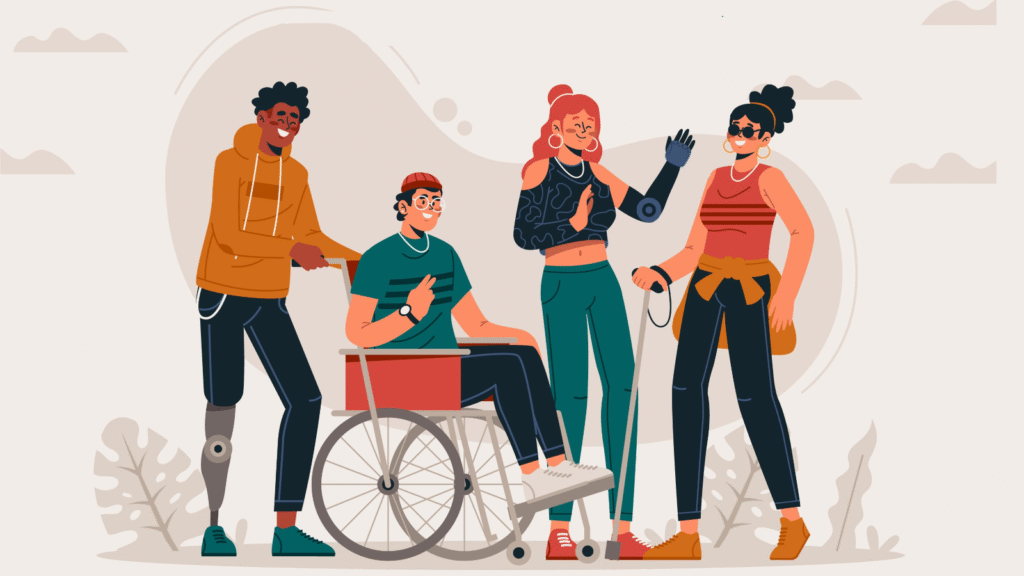
International Assistance Dog Week: August 3 to 9
International Assistance Dog Week was established to celebrate the dedication of assistance dogs and their trainers, acknowledging the vital role these animals play in helping individuals live more independent lives. It highlights the extensive training these dogs undergo to become skilled and reliable helpers.
The week also promotes support for programs that train and provide assistance dogs, ensuring that more people can benefit from their life-changing services.
Goals of International Assistance Dog Week include:
- honour and recognize assistance dogs
- raise awareness about the roles and work of assistance dogs
- celebrate the trainers and puppy raisers behind them
- recognise individual assistance dogs for their heroic efforts
An assistance dog refers to specially trained canines—such as guide dogs and hearing dogs—of any breed that support people with disabilities. Their tasks may include alerting their handler to take medication, providing physical support to those with mobility challenges or performing household duties such as opening cupboards and turning on lights. These dogs may be matched with an individual or work within facilities that support people with special needs.
A therapy dog or emotional support animal, however, is not considered a legally protected assistance dog. While they offer comfort by their presence, they do not perform the specific tasks required under disability law.
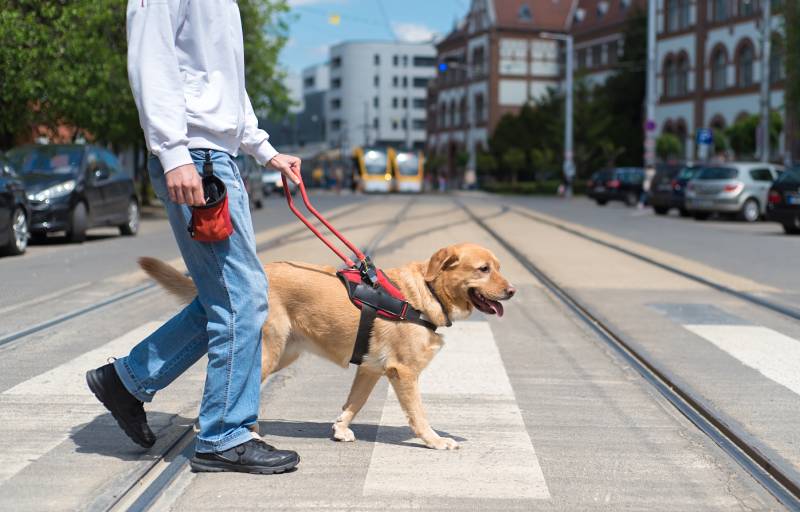
International Youth Day: August 12
International Youth Day, observed annually on August 12, is a United Nations‑designated global awareness day that recognizes the vital contributions of young people and raises awareness of the challenges they face worldwide. First marked on August 12, 2000, the day serves as a platform to shine a spotlight on cultural and legal issues affecting youth, including education employment civic engagement and mental health.
The 25th anniversary of International Youth Day in 2025 carries the theme “Youth Empowerment for a Sustainable Future.” This year’s theme underscores the critical role young people play in creating long‑term solutions for global challenges such as climate change economic inequality and social justice. It urges governments organisations and communities to invest in youth‑led initiatives provide equitable access to opportunities and ensure young voices are meaningfully included in decision‑making processes.
World Humanitarian Day: August 19
World Humanitarian Day is observed on August 19 to honour aid workers who risk their lives in crisis zones and to remember the 22 United Nations (UN) staff, including Sérgio Vieira de Mello, killed in the 2003 bombing of the UN headquarters in Baghdad. Established by the UN in 2008, the day serves as a global call to action for compassion, protection and solidarity.
The 2025 theme, “Strengthening Global Solidarity and Empowering Local Communities,” emphasises the importance of working with affected populations and acknowledges that the most effective humanitarian responses are led locally.
This year’s observance comes amid tragic loss. Since October 2023 more than 430 humanitarian workers — including doctors, medics, aid convoy drivers and over 300 UN staff — have been killed in Gaza while delivering aid and protecting civilians. These attacks and the growing obstruction or politicisation of humanitarian access have drawn global condemnation and raised urgent concerns about violations of international law.
World Humanitarian Day reminds us that humanitarian work is about more than delivering food, water or shelter. It is about upholding human dignity in the most difficult circumstances. Whether through local volunteering, global advocacy or simply speaking up each of us has a role to play in defending humanity. Let us honour the courage and sacrifice of aid workers everywhere and renew our shared commitment to a world founded on empathy, justice and care for all.
International Overdose Awareness Day: August 31
Overdose continues to shatter families and communities across Canada. The 2025 theme for Overdose Awareness Day focuses on imagining a new kind of family, one rooted in hope, love and collective action. It recognizes that while we may share the pain of loss, we also share the power to change what happens next.
The belief at the heart of this movement is clear: overdose can and must be prevented. Proven prevention strategies already exist, and it is time to implement them more broadly. Criminalizing drug use has not worked. Compassionate, evidence-based alternatives must be pursued.
Policy and legislation should be designed to protect individuals and communities, while ensuring basic human rights and essential health and social supports are upheld. Everyone deserves access to respectful, comprehensive health care.
Ultimately, ending overdose requires a community-wide effort grounded in care, connection and the courage to reimagine what is possible.
To learn more about International Overdose Awareness Day, visit Campaign resources – International Overdose Awareness Day
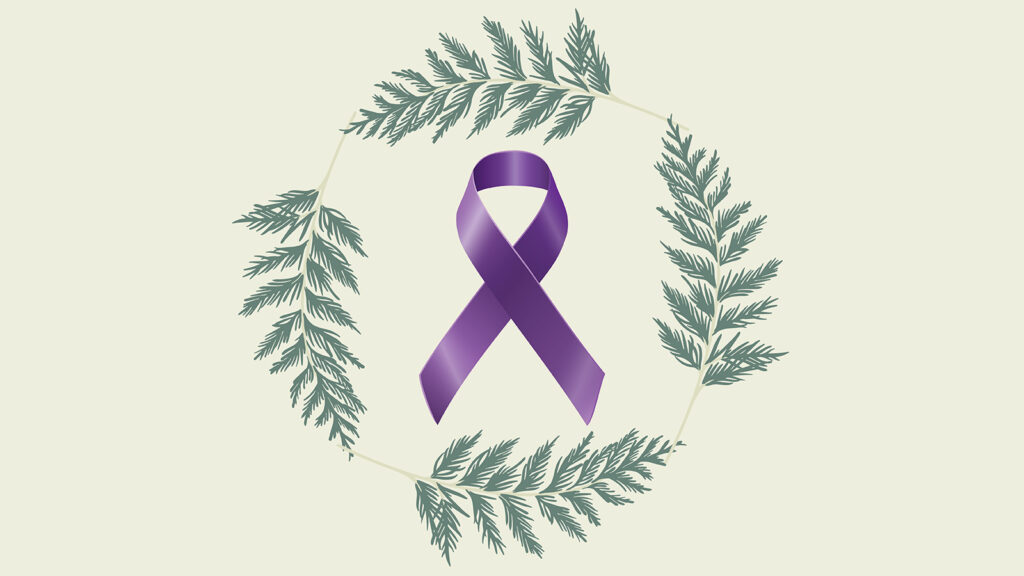
Check out more Grandview Kids articles
- Celebrating Ahaana: Finding sound, strength and community on Cochlear Implant Day
- Navigating the intersection of disability and race as a caregiver: Honouring Black History Month
- Embracing hope through every challenge: Brock’s journey
- Jack’s resilience shines through every step: Rare Disease Day
- February: Dates of Significance
